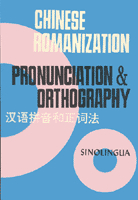 Ah, interjections! Such flavor they can add! With a few of the many interjections in today’s reading on Mandarin interjections (325 KB PDF) you’ll sound a lot more like a native speaker. But don’t overdo it unless you also want to sound like a drama queen.
Ah, interjections! Such flavor they can add! With a few of the many interjections in today’s reading on Mandarin interjections (325 KB PDF) you’ll sound a lot more like a native speaker. But don’t overdo it unless you also want to sound like a drama queen.
Here’s the introduction:
Interjections, sometimes also called exclamations, are a type of function word used in calling out, to express strong emotions, or to indicate agreement. Interjections may form complete utterances on their own, or function as part of a larger utterance. When they form a part of a larger sentence, they most usually appear at the beginning. They are separated from the rest of the sentence by a comma or exclamation point in writing.
Interjections can tolerate a wide degree of variation in tone and intonation in order to better express the emotions they indicate. This makes it difficult to set a fixed Chinese-character form for each different interjection. To better suit this variability, interjections are permitted to go without tone markers in HP.
Interjections, as function words, are written separately from the words around them. Most interjections are monosyllabic, though there are a number of polysyllabic ones, like haiyo, heihei, aiya, and aiyaya. Some interjections are composed wholly of consonants: ng, hm, hng. These too are treated as ordinary syllables.
Thus, when it comes to writing interjections in Hanyu Pinyin, the rules are simple. Pinyin’s greater flexibility than Chinese characters could also open up all sorts of possibilities.
Here are some standard examples from the reading:
- a 啊
- A? Nǐ shuō shénme? (Eh? What did you say?) [INQUIRY]
- A? Yǒu zhèyàng de shìr? (What? Is such a thing possible?) [SURPRISE]
- A, wǒ míngbai le. (Oh, I get it.) [AGREEMENT, COMPREHENSION]
- ai 唉 噯
- Ai, wǒ lái le. (Here I am.) [RESPONSE]
- Ai, bù shì nàme huí shìr. (No, it’s not like that at all.) [DISAGREEMENT]
- Ai, yīqiè dōu wán le. (Oh dear, it’s all over.) [SADNESS]
- aiya 哎呀
- Aiya, zhè nánguā zhēn dà! (My, what a big pumpkin!) [SURPRISE]
- aiyo 哎喲; also aiyao, aiyou
- Aiyo, wǒ dùzi hǎo téng! (Oh, how my stomach aches!) [PAIN]
- aiyo may also be used to express alarm or pleased surprise.
- e, ei
- Ei, nǐ kuài lái! (Hey, come quick.) [USED IN CALLING SOMEONE]
- Ei, tā zènme pao le? (Hey, where did he run off to?) [SURPRISE]
- Ei, bù shì zhèyàng ba. (That can’t be right.) [DISAGREEMENT, DISAPPROVAL]
- Ei, wǒ jiù lái le. (I’m coming.) [USED IN REPLYING- TO A CALL OR SUMMONS.
- haha
- Haha, wǒ cāiduì le. (Ha, I guessed right.) [HAPPINESS OR SMUGNESS]
I’m tempted to keep typing all of these out. There’s not much point in that, though, since everyone can just turn to the PDF. But I’d like to point out a few outside examples.
Y.R. Chao’s translation into Mandarin of Humpty Dumpty has plenty of interjections: hng, ng, a, o, etc.
And remember Crouching Tiger, Hidden Dragon (Wòhǔcánglóng)? After Zhang Ziyi’s character wakes up in Xiao Hu’s cave in Xinjiang, she gives us a good example of the contemptuous interjection pei.
Xiǎo Hǔ: Gàosu wǒ nǐ de míngzi. [Tell me your name.]
Xiǎo Lóng: Pei!
Xiǎo Hǔ: Pei? Hànrén méiyǒu zhèzhǒng míngzi de.
![Yes, I know that's not a word-for-word translation, but it's what they use in the official version (I think). image from 'Crouching Tiger, Hidden Dragon' with the lines Pei? Hànrén méiyǒu zhèzhǒng míngzi de. [Pei? I didn't think the Hans had names like that.]](https://pinyin.info/news/news_photos/2009/04/crouching_tiger_pei.jpg)
Also, the very first word in Crouching Tiger, Hidden Dragon is “Yo!” — just the Mandarin one, not the English one. (“Yo! Lǐ yé lái la.“)

Pingback: Links 27 April 2009 - David on Formosa
Typo of “yīquiè” fixed. Thanks, Dan. I guess I should use my Pinyin spell-checker more; but I’ll need to update it to allow for tone marks.